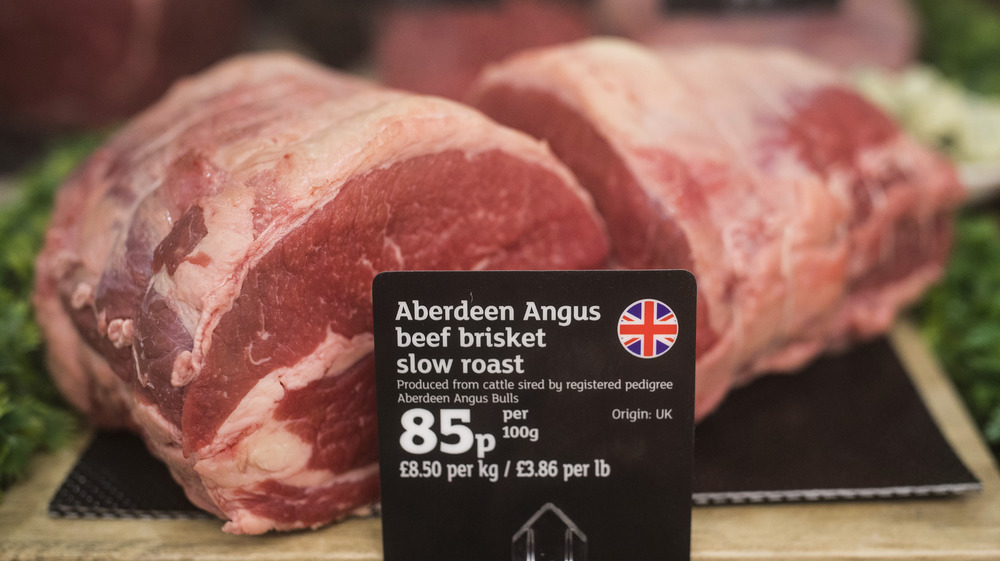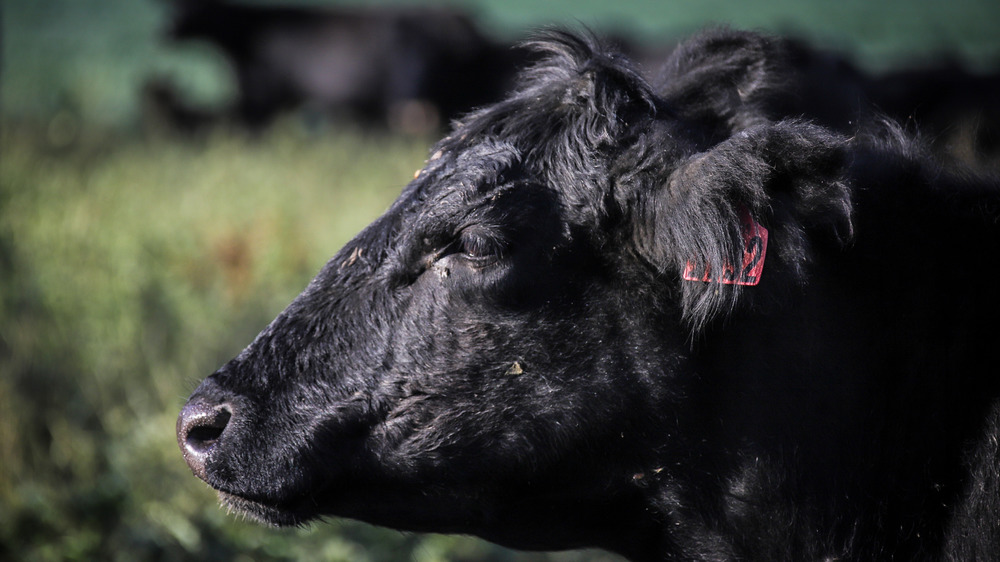Why The Angus Beef You're Eating Might Not Be Authentic
The name Angus beef carries a sense of superiority; after all, most beef gets by unnamed. However, as Chowhound endeavors to clarify, the difference is that Angus beef comes from a cow descended from the Angus cow that originated in the fields around Aberdeen, Scotland, and regular beef comes from cows unrelated to the apex animal.
However, the Angus title is primarily a means to market meat. For a real sense of the quality of the beef you bought, you should inspect the USDA ranking. The Street, however, notes that there's a separate classification called Certified Angus Beef, which is the Angus beef that costs 10 percent more than other beef. The Certified Angus Beef distinction is only awarded to the 1.5 percent of all beef that exceeds "the highest quality standards to ensure every bite is abundantly flavorful and incredibly tender and juicy." If you do see a Certified Angus Beef, then, it's probably a good buy.
How are cows classified as Angus?
Reporting on the Certified Angus Beef conference, Jacob Dean writes in The Takeout that the association that awards the certification is owned by the American Angus Association. More importantly, he uncovered the fact that the manner in which a cow is identified as an Angus cow is not genetic, but cosmetic. According to the Certified Angus Beef website, "Beef that qualifies for any Angus brand, including ours, is determined not by pedigree, but rather by traits, like hair color, that are highly associated with the Angus breed."
This means that though it's likely that any Angus beef you do eat is to some degree an Angus cow, it's not 100 percent known to be such. Of course, like champagne, the difference matters very little as the certification also ensures that the quality of the meat, regardless of genetics, is high. Certified Angus Beef may or may not be authentic, but the title does designate a higher quality beef than those belonging to authentic cows without such pieces of paper.

